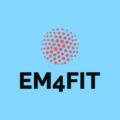Entrepreneuring Management of Human Resources to Unleash Innovation and Forms of Organization
The objective of this work package is not only to reveal the cross-level influences of managerial practices to encourage, facilitate and guide specific employee behaviour towards firm’s necessities but also to demonstrate how specific contexts enable entrepreneuring people management practices to shape new forms of organizing actions.
Entre(Intra)preneurship is a process of organization-creation (Hjorth & Gartner, 2012), forcing the development of organizing processes for the new to work. We focus on the ‘entrepreneuring’ practices (Steyaert, 2007) by concentrating on a more open and processual view of entrepreneurial achievement to shape new forms of organizing actions. However, this processual view of entrepreneurial action is rarely observed in organization studies (Lorenzo, et al., 2018), especially in relation to the role of the entrepreneuring management of human resources.
This is surprising since the firm’s human resources are the source of organizational creativity as well as organizational renewal and innovation capability. The various components of human resource management systems constitute a managerial toolbox to create the context and practices with the aim to encourage and guide the behaviour of the firm’s human resources towards these organizational necessities (Wright & McMahan, 1992; Delery & Shaw, 2001; Teece, 2016).
It is widely acknowledged that a firm’s creativity and innovation is a multilevel phenomenon and effective managerial actions need to be taken throughout the organization (Gupta, et al., 2007). Drawing on the ability, motivation and opportunity (AMO) framework (Appelbaum, et al., 2000; Lepak et al., 2006), motivation and opportunity-oriented practices are needed to allow employees to contribute to the creativity and innovation efforts by the organization. Specifically, involvement and participation techniques let employees have a voice and provide the necessary motivation to get involved. Additionally, ability-oriented practices are needed to enable human resources through their knowledge, skills and abilities to be effective towards the specified organizational objectives. Finally, specific leadership not only enables the empowering of employees but also the effective guidance of individual behaviour. This WP will specifically analyse both the trickle-down effects of leadership behaviour across the various management layers as well as the bottom-up and top-down involvement and participation effects across the organization towards innovation and new forms of organizing actions observed at the various levels inside the firm.
There will be secondments implemented by CUNEF, AUI, SDU, SGCTeIP and TEVA related to the task activities. Naica will contribute to this WP through their expertise and outreach to relevant experts. IUJ will contribute to the WP through their knowledge on employee relations and employee management with a focus on cultural and institutional determinants.

